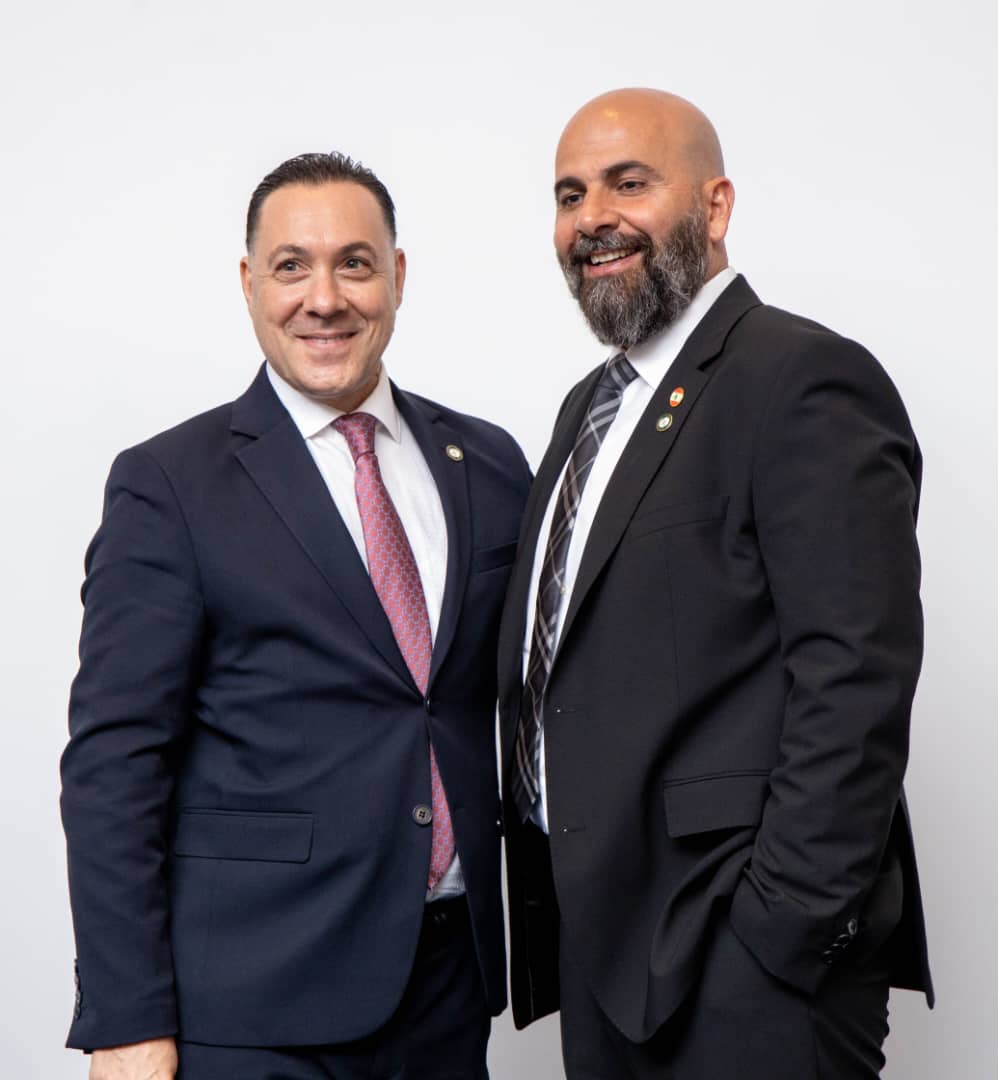Lebanese association in Uganda vows to foster unity, economic empowerment
The new committee is promising to unite its members, spur economic collaborations and deepen ties with Ugandan society through cultural exchanges, job creation initiatives and partnerships with local institutions.
In Uganda, the community’s modest size is estimated at about 500 residents. (Courtesy photos)
________________
Lebanese residents in Uganda have established a new executive committee that aims to collaborate closely in serving all members and extending benefits to the wider Ugandan population.
The new committee is promising to unite its members, spur economic collaborations and deepen ties with Ugandan society through cultural exchanges, job creation initiatives and partnerships with local institutions.
The association’s inception was marked by a key gathering last week at Four Points by Sheraton in Kampala, where a delegation from the World Lebanese Cultural Union (WLCU) convened with community members.
For years, the Lebanese Consulate in Uganda, under the leadership of Consul Yasser Ahmed, has been the cornerstone of support for this community, providing essential guidance, assistance and a vital connection to Lebanon.
However, as the Lebanese presence expanded, Ahmed said it became apparent that a more collective approach was needed to tackle broader social, cultural, and economic opportunities and challenges.
The Lebanese diaspora stands out as one of the world's dynamic global networks, renowned for its entrepreneurial drive, work ethic and humanitarian spirit.
In Uganda, the community’s modest size is estimated at about 500 residents. Lebanese families and entrepreneurs operate malls, factories, shops, restaurants, and diverse enterprises that employ many Ugandans.
Yasser Ahmed as president of the community (right) and Jalal Elachkar as vice-president and head of public relations (left).
The executive committee, includes Yasser Ahmed as president of the community, Jalal Elachkar as vice-president and head of public relations, Chadi Merhi as second vice-president, Bilal El Atrache – senior advisor, Mahmoud Al Achkar – secretary general, and Ibrahim Sbeity – Deputy Secretary General.
Economically, the association pledges to build on the community's longstanding legacy of impact. Yasser Ahmed, the newly elected President, explained that the Lebanese community has been part of Uganda’s economic fabric for decades, contributing in sectors ranging from retail and hospitality to manufacturing and real estate.
“Our association aims to build on this legacy by fostering collaboration among Lebanese entrepreneurs, encouraging new investments, and promoting best practices that benefit both Lebanese-owned and Ugandan-owned enterprises. We also intend to create a more structured platform where Lebanese business leaders can coordinate their efforts, share expertise, and support initiatives that generate lasting value in Uganda,” he said.
A key focus, according to Ahmed, will be on job creation and skills development, recognising the thousands of Ugandans already employed by Lebanese ventures.
“Lebanese businesses in Uganda already employ thousands of Ugandans, and we want to enhance that by promoting training, internships, and mentorship opportunities,” he said.
He said the association plans to facilitate programs where Lebanese entrepreneurs can share expertise in areas such as hospitality, food processing, retail management, and construction.
“By investing in people, we help create a workforce that is more skilled, competitive, and ready to seize opportunities in Uganda’s growing economy,” he added.
To extend these benefits beyond the Lebanese community, the association envisions strong collaborations with Ugandan entities.
Ahmed said this includes partnering with government agencies, businesses, and civil society groups to advance cultural understanding, education, and economic progress.
“We believe that true success lies in partnerships. Our vision includes working closely with Ugandan institutions and civil society groups to promote cultural understanding, education, and economic growth. This could take the form of joint cultural festivals, youth exchange programs, business roundtables, or charitable initiatives that directly support Ugandan communities,” he noted.
Culturally, the group promises to serve as a bridge between Lebanon and Uganda, introducing Lebanese traditions, cuisine, and arts through festivals, sports events, and language programs.
Plans also include exploring reciprocal exchanges, such as visits between the two nations, to enrich both societies.
Vice President of the group, Jalal Elachkar highlighted the relational aspect, noting that “The Lebanese community considers Uganda not just a place of business, but a second home.”
He added, “Our association aims to strengthen ties with the Ugandan government and local communities through open dialogue, transparency, and active participation in national development.”
Elachkar promised that they will work hand-in-hand with government agencies on areas of mutual interest, while also engaging directly with local communities through cultural events, social programs, and outreach activities.
“Our goal is to demonstrate that the Lebanese community is a partner in Uganda’s progress, and to deepen the friendship between our two peoples,” he added.